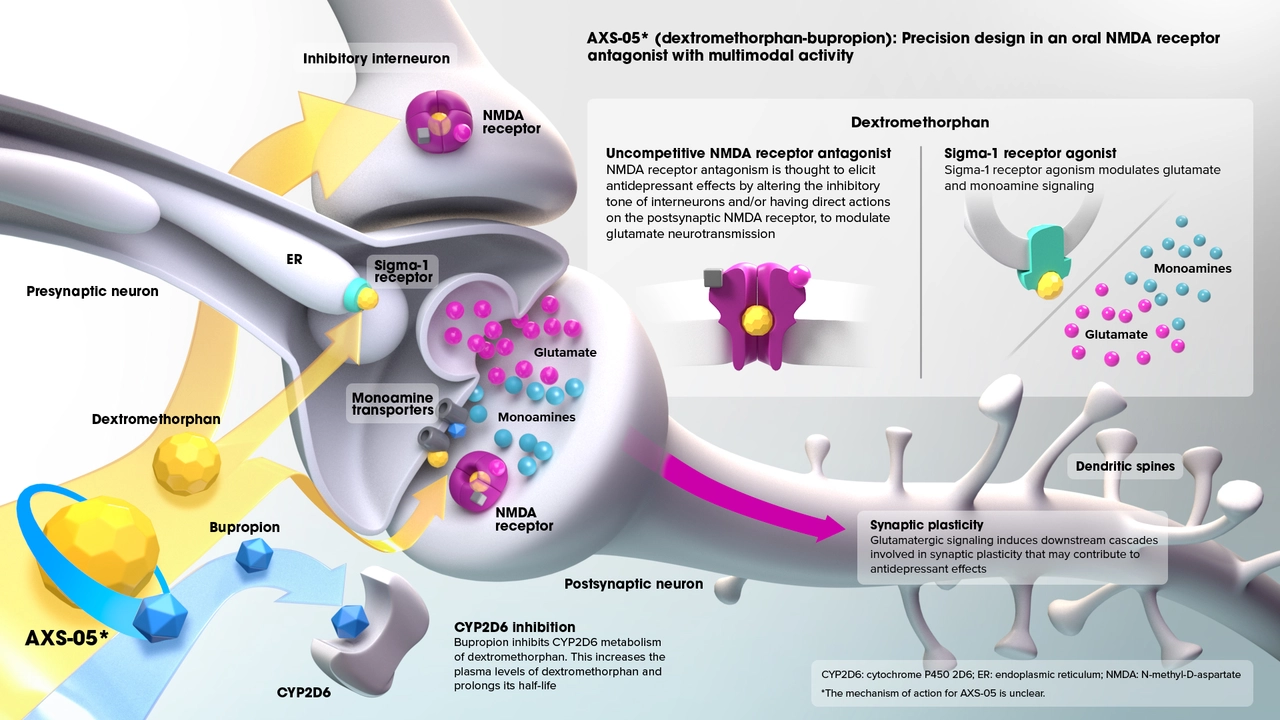Ever wondered what doctors mean when they talk about a medication’s "mechanism of action"? In plain terms, it’s the way a drug does its job inside your body. Think of it as a tiny key that fits into a specific lock, triggering a change that treats an illness or eases symptoms.
Every medicine targets something – a protein, a receptor, an enzyme, or even a whole cell. When the drug binds to its target, it can block a harmful process (like stopping bacteria from building their walls) or boost a helpful one (such as increasing insulin release). That interaction is the core of the mechanism.
For example, ibuprofen blocks enzymes called COX‑1 and COX‑2. Those enzymes normally make prostaglandins, which cause pain and inflammation. By stopping them, ibuprofen reduces swelling and eases aches. The same idea applies to antibiotics, antidepressants, and even vaccines – each has a unique way of influencing the body.
Understanding how a drug works helps you make smarter choices. If you know a medication blocks a certain pathway, you can anticipate possible side effects or interactions with other meds you’re taking. It also explains why two drugs that treat the same condition might feel different – they may act on separate targets.
Take blood‑pressure pills as an example. Some, like ACE inhibitors, relax blood vessels by stopping a hormone from tightening them. Others, like beta‑blockers, slow heart rate by dampening adrenaline signals. Both lower pressure, but the side‑effect profiles differ because their mechanisms vary.
When doctors prescribe a new drug, they consider your health history, other prescriptions, and the drug’s mechanism. That way they can pick a treatment that fits you best while minimizing risks. If you ever ask why a certain med is chosen, the answer often comes down to its specific action inside your body.
Knowing the mechanism also empowers you when reading labels or research articles. You’ll spot terms like "receptor antagonist" or "enzyme inhibitor" and instantly have a clue about what the drug does. That can help you follow dosage instructions, avoid foods that interfere, and recognize warning signs early.
In everyday life, you don’t need to become a pharmacology professor. Just remembering that every medicine has a target – and that target determines both benefits and side effects – gives you a solid foundation for talking with your doctor or pharmacist.
So next time you pick up a prescription, take a moment to ask: what’s the drug’s mechanism of action? The answer can demystify treatment plans, boost confidence in your care, and keep you safer on the road to better health.

In my recent deep dive into the workings of Ornidazole, I found that it operates as an effective antibacterial and antiprotozoal medication. It primarily fights against infections by damaging the DNA of the pathogenic microorganisms, preventing them from reproducing or spreading further. Ornidazole selectively targets and enters bacterial cells, then interferes with their genetic material. This intricate process ultimately leads to the death of the bacteria or protozoa, effectively treating the infection. With its unique mechanism, Ornidazole is a powerful tool in our medical arsenal.
PCI and CABG are two proven treatments for blocked heart arteries. Learn how doctors decide which one is right for you based on diabetes, blockage complexity, and long-term outcomes.
Zyrtec is one of the top choices for fast allergy relief, but there's much more to it than just popping a pill. This article explores how Zyrtec works, tips for safer use, how it compares to other allergy medicines, and surprising facts you probably didn't know. Discover detailed advice and smart hacks to help make your allergy season a breeze.
Traveling with lupus, whether it’s discoid or systemic, requires thoughtful preparation to ensure safety and comfort. By understanding how to manage symptoms and potential triggers, individuals can enjoy their journeys with less worry. This guide provides key tips for planning trips, managing medications, and staying healthy on the road. Knowing your limits and preparing for unexpected situations can make traveling with lupus a more pleasant experience. With the right strategies, those with lupus can embrace the explorative spirit while staying safe.
Learn the correct protein targets for each stage of chronic kidney disease, how plant vs. animal protein affects kidney health, and practical ways to follow a kidney-friendly diet without losing muscle or quality of life.
A clear guide on using Ramipril in seniors, covering benefits, dosing, side effects, interactions, and safety tips for patients and caregivers.